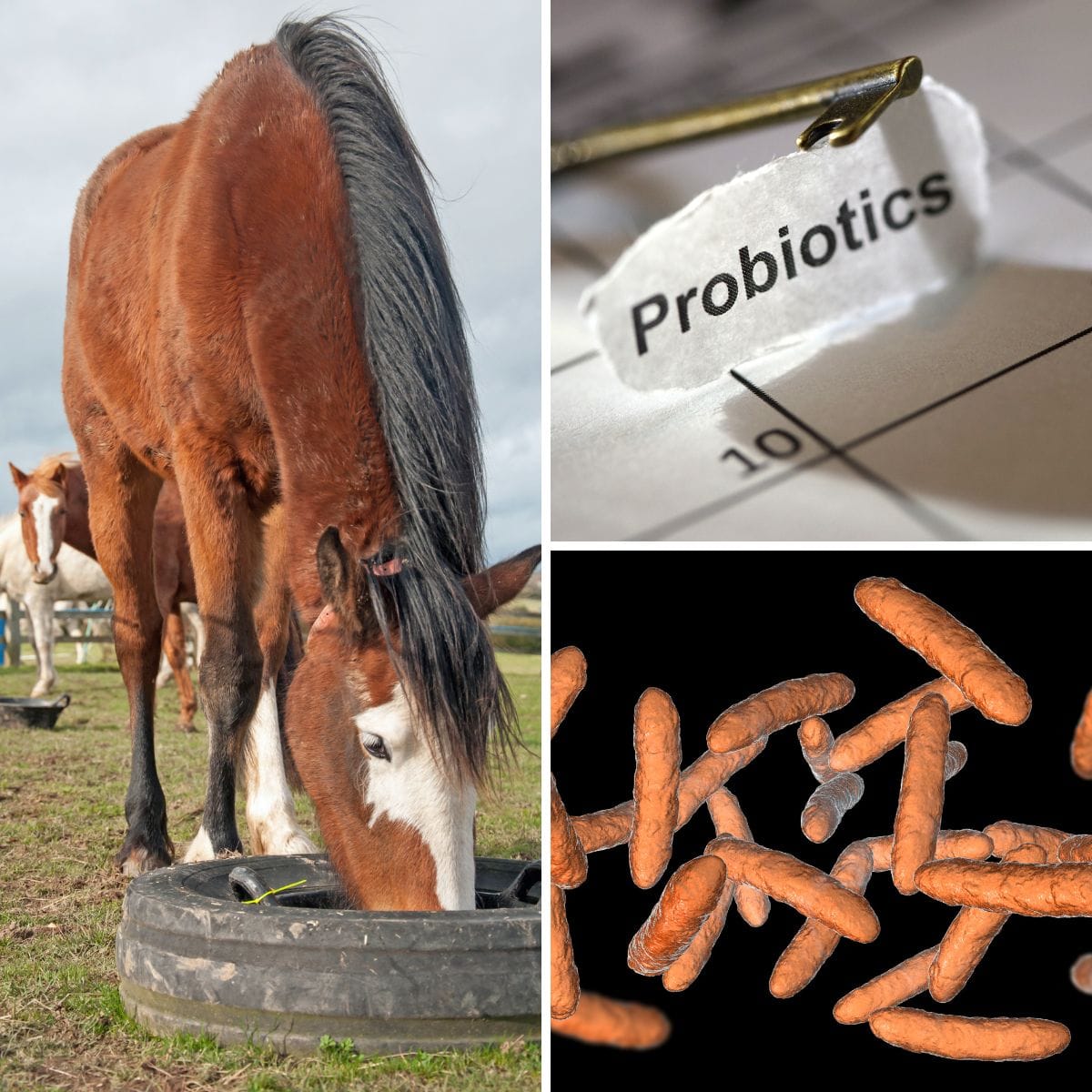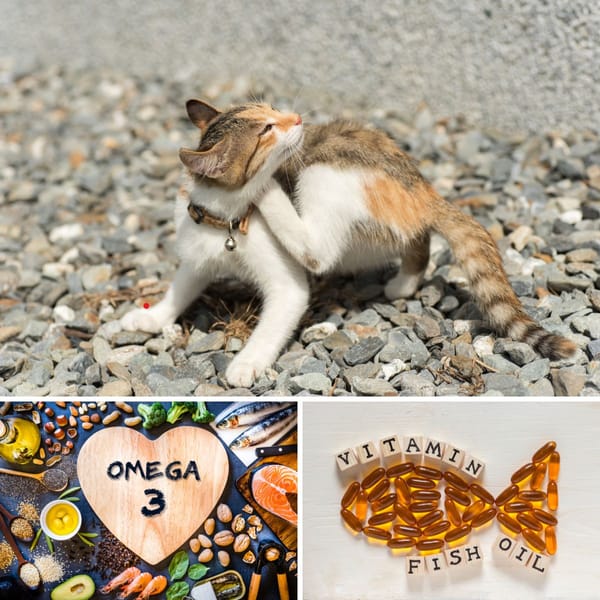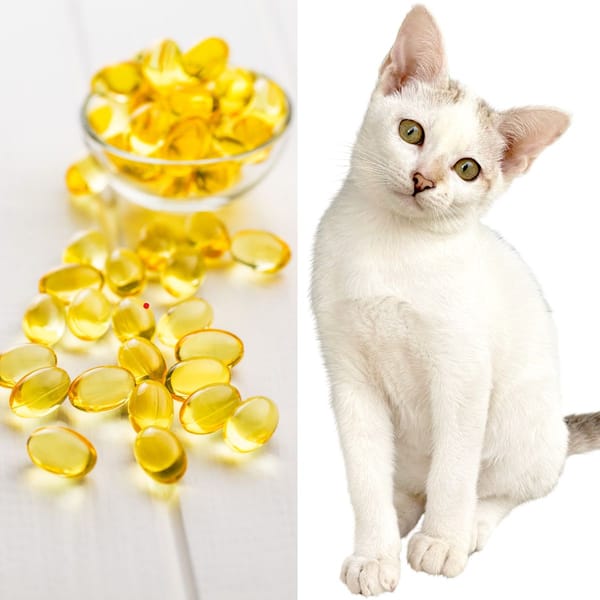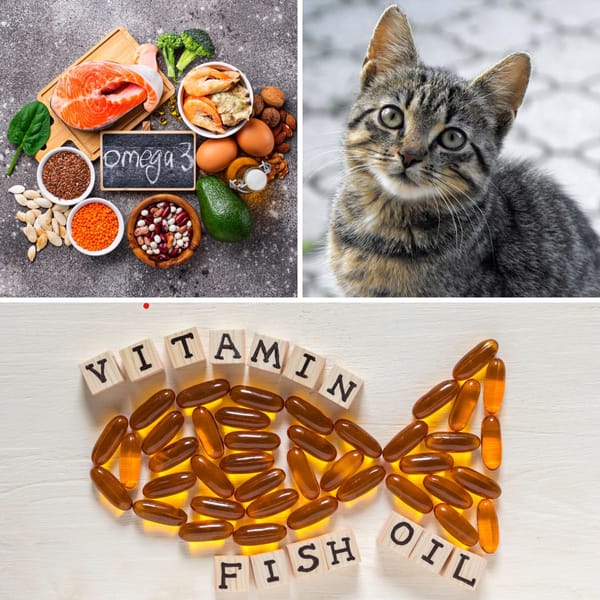Key Takeaways:
- Probiotics may help in maintaining a healthy balance of microflora in the horse's gastrointestinal tract, potentially decreasing the risk of colic.
- While some studies suggest benefits, the evidence is not conclusive, and horse owners should consult with veterinarians for personalized advice.
- Good management practices, including proper feeding and dental care, are essential in preventing colic alongside considering probiotics.
Horse owners know all too well the fear that the word 'colic' instills. Equine colic, characterized by abdominal pain, can range from mild to life-threatening. In the quest for preventive measures, the role of probiotics has come under scrutiny. Do these live microorganisms, touted for their health benefits in humans, offer the same for our equine companions? This article delves into the current understanding of probiotics in the prevention of colic in horses.
Understanding Equine Colic
Colic in horses is not a disease but a symptom of gastrointestinal distress. It can manifest due to various reasons, including impaction colic, gas colic, sand colic, and more severe cases that may require colic surgery. The pain can stem from blockages, gas buildup, or the intestine twisting upon itself. Recognizing the signs, such as an increased risk of rolling, pawing, or a change in normal respiratory rate, is crucial for timely intervention.
The Role of the Digestive Tract in Equine Health
The horse's digestive tract is a complex system where digestion and absorption of nutrients occur. It's also home to a vast array of microorganisms that play a pivotal role in maintaining gastrointestinal health. Disruptions in this microbial balance can lead to digestive upset, making the horse more susceptible to colic episodes.
Probiotics and Their Function
Defined by the World Health Organization as "live microorganisms which, when administered in adequate amounts, confer a health benefit on the host," probiotics are often used to treat diseases and improve general health. In horses, the goal is to enhance the intestinal barrier function and outcompete pathogenic bacteria, thus supporting the immune system.
Can Probiotics Decrease Colic Risk?
The central question is whether probiotics can effectively decrease colic risk in horses. Some evidence suggests that probiotics can improve gut motility and reduce the incidence of intestinal impactions, a common cause of colic. However, few studies have directly linked probiotic use to a lower incidence of colic, and more research is needed to establish a clinical effect.
Probiotic Strains and Their Specific Roles
Not all probiotics are created equal. Different strains have different effects on the gastrointestinal tract. For example, Saccharomyces cerevisiae has been shown to encourage drinking and improve fiber digestion, which could indirectly minimize stress on the horse's abdomen and reduce colic risk.
The Impact of Sand Colic and Probiotics
Sand accumulation in the intestines, particularly the small intestine, can lead to sand colic. Probiotics may help by increasing the movement of sand through the GI tract, although horse owners should also employ management strategies like feeding off the ground to prevent sand ingestion.
Feeding Practices and Colic Prevention
Feeding practices play a significant role in colic prevention. Overfeeding, especially high grain diets or too much sweet feed, can lead to digestive issues. Gradually introducing horses to new feeds and using a slow feeder can help maintain a healthy digestive system and prevent colic.
The Importance of Water Intake
Encouraging drinking is vital for preventing impaction colic. Loose salt can be added to the horse's feed to stimulate thirst, and clean, fresh water should always be available. Probiotics may also encourage drinking by improving gut health. Adjusting Feed to Mitigate Colic Risks The intestinal tract of a horse is sensitive to abrupt changes, which can be a significant risk factor for colic. As a general rule, any alterations to a horse's feed should be introduced gradually. Horses have evolved to digest fibrous plant material over long periods, and sudden dietary shifts, especially the introduction of too much grain, can disrupt the delicate balance of their gut flora. This disruption can lead to an excess production of lactic acid, which in turn can cause discomfort and potentially lead to colic.
To minimize the risk of colic, it's essential to implement a feeding program that aligns with the horse's natural eating patterns. Even horses that are domestic animals require a diet that mimics the foraging they would do in the wild. This means providing a consistent supply of high-fiber forage and ensuring that any grain or concentrate is given in smaller, more frequent meals. By doing so, owners can help maintain the health of the horse's digestive system and reduce the likelihood of colic episodes.
Environmental Factors and Colic Prevention
Humid conditions can also play a role in the development of equine diseases, including colic. The moisture in the air can affect the quality of the horse's feed, potentially leading to the growth of mold or toxins that can irritate the horse's abdomen. It's crucial for horse owners to store feed in a dry, cool place and to check it regularly for any signs of spoilage. Additionally, ensuring that the feeding area is clean and free from contaminants is a simple yet effective step in safeguarding the horse's health.
Another environmental consideration is the amount of time horses spend confined in stalls. Prolonged stall confinement can be a stressor for horses, which may increase the risk of colic. To counteract this, gradually horses should be allowed ample turnout time to move freely and engage in natural behaviors. This not only helps in reducing stress but also promotes regular movement, which is beneficial for the intestinal tract. By managing both the horse's diet and environment thoughtfully, owners can significantly reduce the chances of emergency surgery due to colic and contribute to the overall well-being of their equine companions.
Optimizing Horse's Feed with Probiotics
When considering the diet of a horse, the inclusion of probiotics can be a game-changer, especially in the context of horse colic prevention. Probiotic supplements are designed to introduce beneficial bacteria into the horse's abdomen, which can aid in digestion and potentially reduce the incidence of digestive disturbances. By carefully selecting the right probiotic strain, horse owners can tailor their approach to meet the specific needs of their equine companions. It's not just about adding any probiotics to the horse's feed; it's about understanding which strains offer the most benefits for digestive health and colic prevention.
Moreover, the timing and method of introducing probiotics into a horse's feed are crucial. Sudden feeding changes can upset a horse's delicate digestive system, leading to discomfort or even colic. Therefore, when integrating probiotics into the diet, it's essential to do so gradually. This allows the horse's system to adjust to the new components in its feed, minimizing the risk of adverse reactions. Consistency is key, as regular supplementation can help maintain a balanced gut flora, which is a cornerstone of overall equine health.
The Influence of Diet Composition on Horse's Abdomen Health
When considering the health of a horse's abdomen, the composition of the horse's feed plays a pivotal role. A diet that is high in fermentable carbohydrates, for example, can lead to an overproduction of gas and subsequent discomfort, which may increase the risk of colic. It's essential to balance the feed with adequate fiber, as it promotes healthy gut motility and fermentation processes, thereby supporting the overall well-being of the horse's digestive system. Careful attention to the diet composition can mitigate many risks associated with colic and other gastrointestinal disturbances.
Moreover, the inclusion of specific types of feed can influence the microbial population within the horse's gut. For instance, feeds that are rich in omega-3 fatty acids have been shown to have anti-inflammatory effects, which could benefit the health of the horse's abdomen. Adjusting the horse's feed to include these beneficial components, while ensuring that the diet remains balanced and tailored to the individual horse's needs, is a critical aspect of maintaining digestive health and preventing colic episodes.
The Role of Fiber in a Horse's Feed
When considering the health of a horse's abdomen, the role of fiber cannot be overstressed. Fiber is a key component of a horse's diet and is essential for maintaining proper digestive function. Horses evolved as grazing animals, and their digestive systems are designed to process high-fiber forage. Providing a diet rich in quality hay or pasture can help stimulate normal gut motility, which is crucial in preventing impaction colic. Additionally, fiber acts as a prebiotic, supporting the growth of beneficial bacteria in the gut, which can work synergistically with probiotics to maintain a healthy microbiome.
Moreover, the balance of fiber types in a horse's feed is also significant. Soluble fiber, found in feeds like beet pulp, can hold water and help maintain hydration in the gut, which is vital for preventing dry, compacted feces that can lead to colic. Insoluble fiber, such as that found in hay, provides the bulk needed to keep the intestines moving. Ensuring that horses have constant access to fiber sources can mimic their natural grazing behavior, reduce stress, and promote overall digestive health, which is a cornerstone of colic prevention.
The Benefits of Regular Exercise for Equine Digestive Health
Regular exercise is another pivotal factor in maintaining a horse's abdomen health. Exercise not only helps in managing a horse's weight and preventing obesity, which is a risk factor for various health issues, but it also plays a direct role in stimulating digestive motility. A sedentary lifestyle can slow down the digestive process, leading to an increased risk of colic. By incorporating regular turnout and structured exercise into a horse's routine, owners can help ensure that the digestive system functions as nature intended.
In addition to structured exercise, allowing horses to move freely in a paddock or field can encourage natural foraging behavior and continuous intake of small amounts of feed. This mimics the horse's natural feeding patterns and helps to maintain a steady flow of nutrients through the digestive system, reducing the likelihood of gas buildup and intestinal disruptions. Exercise, combined with a well-managed feeding schedule, can significantly contribute to the prevention of colic and support the overall well-being of the horse.
The Significance of Monitoring Horse's Feed Intake
Regular monitoring of a horse's feed intake is crucial for early detection of any changes that could indicate health issues, including the onset of colic. A sudden decrease in appetite can be a telltale sign of discomfort or pain in the horse's abdomen, prompting further investigation. By keeping a close eye on how much and how often a horse eats, caretakers can quickly respond to any abnormalities, potentially averting more serious complications.
In addition to monitoring quantity, it's equally important to observe the horse's behavior during feeding. Horses that eat too quickly, for instance, may not chew their feed thoroughly, leading to larger particles entering the digestive tract and increasing the risk of impaction colic. Slow feeders or hay nets can be employed to encourage slower eating habits, promoting better digestion and reducing the likelihood of colic. By being vigilant about a horse's feed intake and eating habits, owners and caretakers can play a proactive role in safeguarding the animal's digestive health.
The Role of Feeding Changes in Colic Prevention
Feeding changes in horses need to be managed with care, as abrupt alterations can lead to horse colic, a painful and sometimes life-threatening condition. The introduction of a new probiotic strain or a change in the horse's feed should be done incrementally to allow the horse's abdomen to adapt without distress. This careful management can help maintain the balance of microflora in the gut, which is essential for proper digestion and absorption of nutrients. By monitoring the horse's response to these changes, owners can ensure that the transition supports gut health rather than disrupts it.
In addition to the pace of change, the quality of the horse's feed is paramount. High-quality feed that is rich in fiber and low in fermentable carbohydrates is ideal for maintaining a healthy digestive system. When combined with probiotic supplementation, such a diet can fortify the horse's gut against colic. It's also important to consider the horse's individual needs, as factors like age, activity level, and existing health conditions can influence the optimal feeding regimen. By taking a holistic approach to feeding changes and probiotic use, horse owners can play a proactive role in safeguarding their horses against colic.
Stress, Stall Confinement, and Colic
Stress and stall confinement are known risk factors for colic. Minimizing stress through adequate pasture time, social interaction, and a stable routine can help, as can probiotics that may help maintain a balanced gut flora even in less-than-ideal conditions.
The Connection Between Dental Care and Digestive Health
Dental care is crucial for equine health. Poor dental conditions can lead to improper chewing, resulting in larger food particles entering the digestive tract and potentially causing impactions. Regular veterinary care, including dental checkups, is essential.
Quality Control in Probiotic Products
Quality control is a significant concern with probiotic supplements. Horse owners should look for products with clear label claims and evidence of quality control, as many probiotics on the market lack the necessary validation.
Probiotics for Different Life Stages
The needs of neonatal foals differ from those of adult horses. While foals may benefit from probiotics to establish a healthy gut flora, adult horses might need them for different reasons, such as after antibiotic treatment or during times of stress.
The Natural Setting vs. Domestic Care
In a natural setting, horses graze and forage, which supports their gastrointestinal health. In domestic care, we must replicate this as closely as possible through proper feeding programs and management practices, including considering the use of probiotics.
Agricultural Organization Recommendations
Organizations like the Agricultural Organization emphasize the importance of a holistic approach to equine health. While probiotics may play a role, they should be part of a broader health and nutrition strategy.
Understanding the Limitations of Probiotics
While probiotics hold promise, it's essential to understand their limitations. They are not a cure-all and should not replace proper veterinary care or good management practices. Horse owners should be wary of over-relying on supplements without addressing underlying issues.
Case Studies: Probiotics in Action
Practical examples of probiotics' effects on equine colic are limited, but anecdotal evidence and preliminary studies suggest potential benefits. Case studies involving horses with a history of colic episodes may provide insight into the effectiveness of probiotics as a preventive measure.
The Future of Probiotics in Equine Care
As research continues, the understanding of how probiotics can prevent colic in horses will evolve. For now, they remain a tool in the arsenal against colic, to be used judiciously and in conjunction with other preventive measures.
Summary
The question of whether probiotics prevent colic in horses is complex. While there is some evidence to suggest that they can support gastrointestinal health and potentially decrease colic risk, the evidence is not definitive. Probiotics should be considered as part of a comprehensive approach to equine care that includes proper feeding, management practices, and regular veterinary care. Horse owners should consult with their veterinarians to determine the best approach for their individual horses.
FAQ Section
Q: Can probiotics replace the need for colic surgery in horses? A: No, probiotics cannot replace the need for colic surgery. They may help in maintaining a healthy gut flora, but severe colic cases often require surgical intervention.
Q: How do I choose the right probiotic for my horse? A: Look for probiotics with specific strains that have been studied in horses, clear label claims, and evidence of quality control. Consult with your veterinarian for recommendations tailored to your horse's needs.
Q: Are there any adverse effects of giving my horse probiotics? A: While probiotics are generally considered safe, there can be adverse effects if the wrong type or too much is given. It's essential to follow the guidance of a veterinarian and adhere to recommended dosages.







